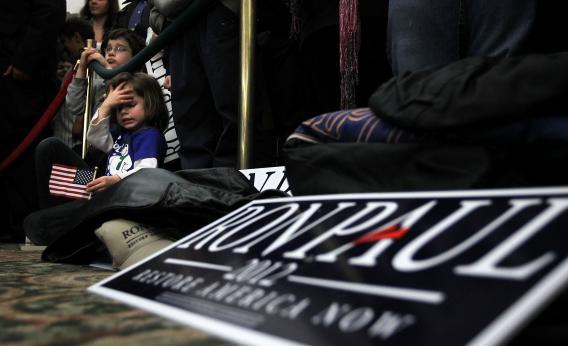The headline doesn’t match the data. Reporting from St. Thomas, the AP declares Mitt Romney the winner of the Virgin Islands caucuses. And at the same time the local Republcian Party prints these numbers.
384 total cast
112 to Paul (29%) Won one delegate
101 to Romney (26%) Won three delegates plus three RNC member pledge. (Pick up a uncommitted delegate after the balloting for a total of seven.)
23 to Santorm (6%) No delegates
18 to Gingrich (5%) No delegates
130 Uncommitted (34%) Two delegates but one changed to Romney after the vote totals were announced
How did Paul get 11 more votes than Romney, but lose to him on delegates? It’s complicated. The Virgin Islands doesn’t portion out delegates by popular vote. Voters literally elect delegates – the six with the most support get to go to Tampa. So April Newland, John Clendenin, Luis Martinez, all Romney supporters, made it into the top bracket. Warren Bruce Cole, an uncommitted delegate, won then backed Romney. Only one Paul delegate, Robert Max Schanfarber, made the six.
A pity for Paul. Just like in Virginia, he and Romney were the only candidates who hustled to qualify for the election. Both had six VI delegates on the slate; Santorum only had two.
